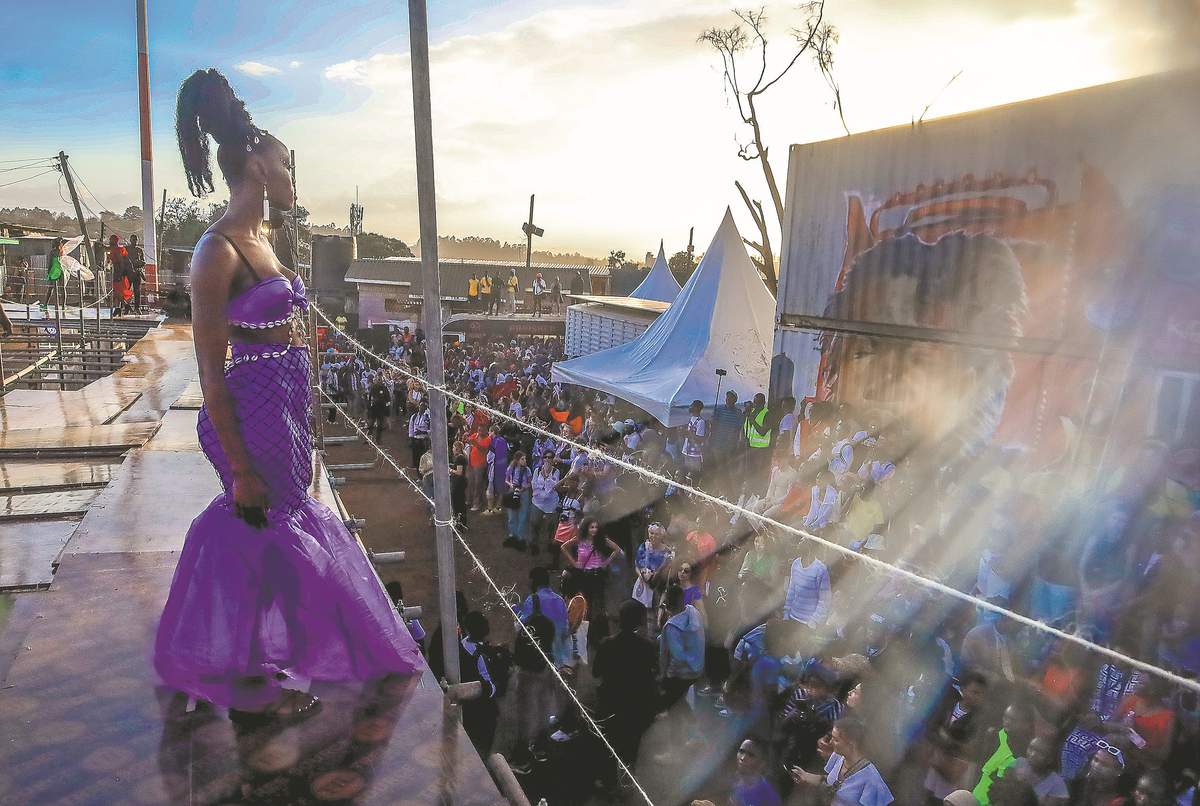Africa poised to shape future of global fashion
Despite several challenges facing the industry, continent has several unique factors that may propel it to success


Despite several challenges facing the industry, continent has several unique factors that may propel it to success
Editor's Note: Fashion weeks and trade shows in Africa provide platforms as local designers gain recognition for their unique style and use of local resources. China Daily looks at the potential and challenges facing the booming industry.
At the Africa Sourcing and Fashion Week held in Ethiopia this month, award-winning Kenyan designer Aulga Nato was elated to showcase her designs.
During the four-day fashion extravaganza held in the Ethiopian capital Addis Ababa, models donning designs by Nato and her fellow designers strutted across an open-air runway at Skylight Hotel. The event, which is among top fashion shows on the continent, attracted 5,150 visitors, according to organizers.
"African fashion is just getting known across the world. I have seen African aesthetics that are so different from what we see around the world," Nato said. "The rest of the world is just repeating designs, but Africa is introducing new and fresh ideas. And I believe that right now, we are the in-thing."
Nato knows this well, as she was named African Emerging Designer of The Year at the African Icon Hope Awards last year. She believes that Africa is the future hub of global fashion.
According to a UNESCO report titled "The Fashion Sector in Africa: Trends, Challenges, and Opportunities for Growth" released in October, the continent is emerging to become a new global fashion leader.
"Africa's young, innovative and growing population, a rising middle class, rapid urbanization, and increased government support are some of the factors fueling the African fashion sector. The potential is enormous, not only for the economy but also for young people's inclusion, women's empowerment, and for African culture to resonate globally," the report stated.
Despite the bulk of African fashion businesses being micro or small and medium-sized enterprises targeting a hyperlocal market with ready-to-wear and made-to-order clothes, the report also identified a growing number of high-fashion brands concentrated in key markets such as Cote d'Ivoire, Ghana, Kenya, Nigeria, Rwanda, Senegal and South Africa. These provide luxury products for a small group of local and international clients with high purchasing power.
Grace Mbugua runs one such brand and she agrees that there is room for growth in Africa's fashion industry.
Mbugua, who attended the fashion week in Addis Ababa, said events like these will go a long way in making the world take note of African fashion.
"One of the benefits of such fashion fairs is business growth which comes through exposure, partnerships, learning what the world is looking for and what the latest trends are. Ethiopia is one of the largest producers of leather products and I have had the opportunity to see some of the leather they have," Mbugua, who runs J-lo Collections which manufactures products in leather, textile and home decor, said. "They have beautiful and refined leather and I am looking forward for Kenya to get there."

































